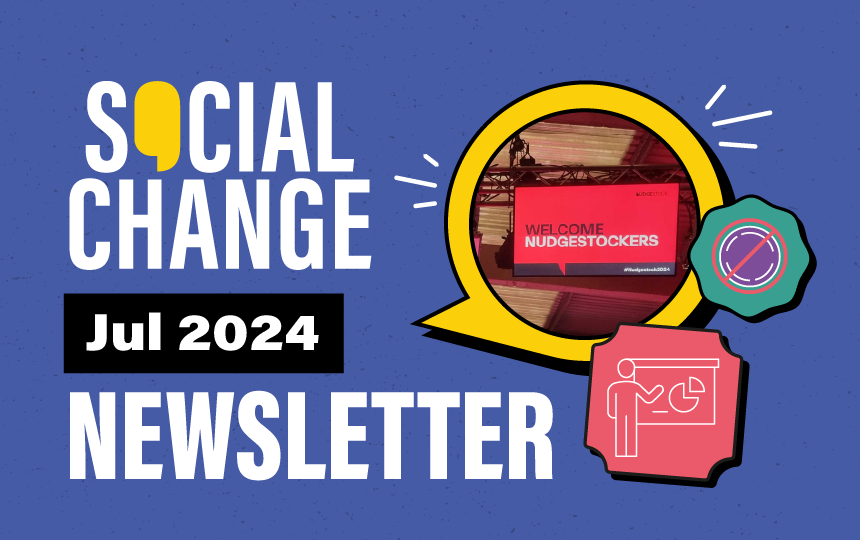
July 2024 Newsletter
The latest Behavioural Insights and how they can help you overcome resistance and inspire positive change.
More +Your regular dose of BS (Behavioural Science) from the Changemakers at Social Change.

Would you be someone’s hero?
Did you know, only 30% of people would help in emergency situations whilst others were present?*
*Source: Latané, B., & Darley, J. M. (1970). The unresponsive bystander: Why doesn't he help?
Multiple factors explain why this percentage may be so low:
Diffusion of responsibility, also known as the bystander effect: When other people are present, individuals often feel less personally responsible for taking action, assuming someone else will step in. This lowers the sense of urgency and personal accountability.
Social influence and pluralistic ignorance: People tend to look to others for cues on how to behave. If no one else is acting, individuals may interpret the situation as non-urgent or assume intervention is unnecessary, even if they feel internally that something should be done.
Fear of making a mistake: Some may worry about misinterpreting the situation, fearing embarrassment or negative judgment if they intervene when it's not necessary. This social fear can prevent action, especially in public settings.
Perceived ability to help: If individuals feel they lack the skills or resources to offer meaningful assistance, they might hesitate to act, assuming that others are better equipped to handle the situation.
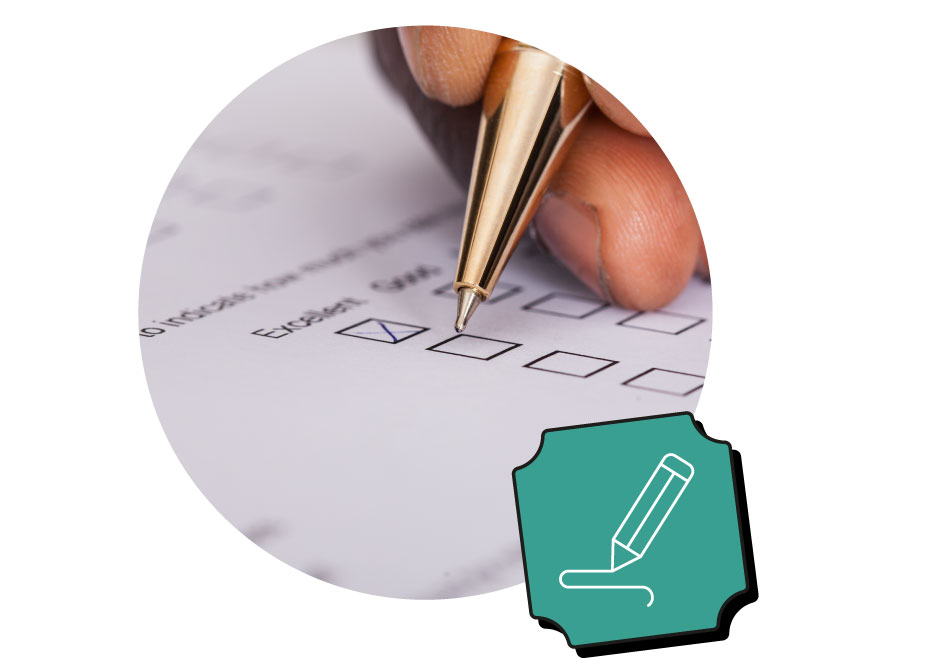
A one-minute introduction to a behavioural theory
Default Effect - We tend to accept the option pre-chosen for us and are unlikely to deviate from default options presented to us.
For example, many countries have implemented an opt-in or opt-out system for organ donation.
Opt-In System: In countries with an opt-in system, individuals must actively choose to sign up as organ donors. Many people do not do this, so the default choice is not to be a donor. As a result, the number of registered organ donors can be relatively low.
Opt-Out System: Some countries use an opt-out system, where individuals are automatically considered organ donors unless they explicitly choose not to be. The default choice is to be a donor, which often results in significantly higher donation rates because the majority of people do not actively opt out.
In this case, the Default Effect leads to a higher organ donation rate simply because the default option aligns with the desired behaviour.
Are you interested in defaults? Check out our latest guide!
News: What can we learn from Zero Waste Cities around the world?
Kiel in Germany is a city implementing innovative strategies to achieve Zero Waste City certification. In this blog we explore their approach and how other cities are progressing toward zero waste.
Opinion: Do you know your millennials from your generation X
“You don’t understand what it was like when I was growing up.”
“Your generation gets everything handed to you.”
Explore the idea of ‘generation boxes’ and whether when we were born defines who we are.
Blog: 6 Years On - Are We Still Rubbish at Recycling?
Recycling opinions have evolved in the last six years. What used to be a chore is now crucial, but are our efforts enough?
In this blog, we revisit the question: Are we still rubbish at recycling, or have we improved?
How to guide: How to build a Social Movement
Social movements shape our world today. This guide walks you through their development, from basic principles to the key elements that drive their success—and the missteps that can halt progress. Explore the power of social movements.
Resource: Co-Creation and Co-Production
Co-creation and co-production are often confused, though each offers unique benefits. Our quick reference guide clarifies the differences, helping you understand which approach is best for stakeholder engagement in your projects.
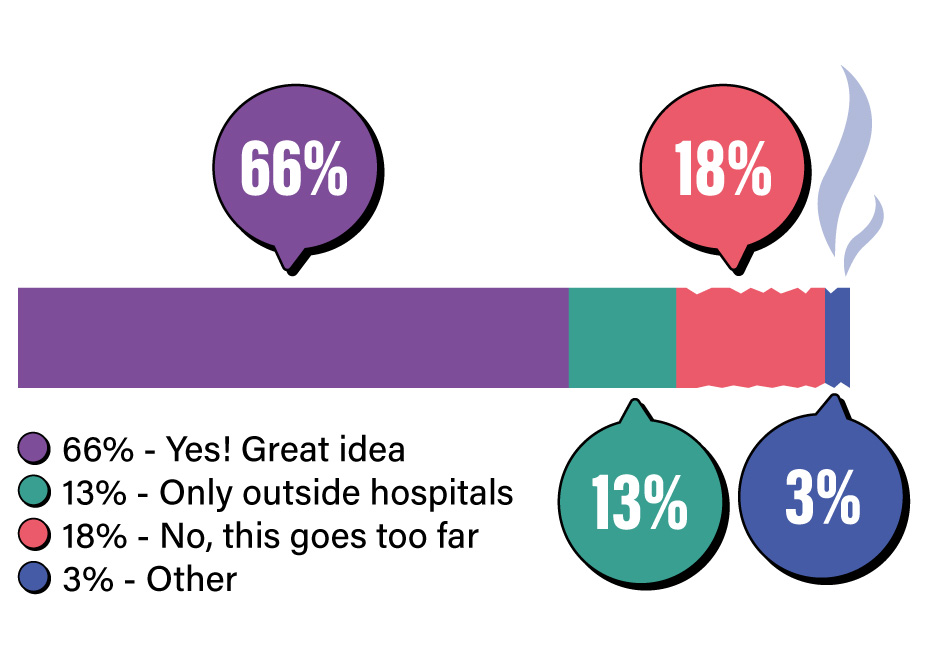
Should smoking be banned in pub gardens, outdoor restaurants, and outside hospitals and sports grounds?
This majority vote reflects the growing social norms against smoking, where public health awareness campaigns have made smoking less socially acceptable, particularly in shared spaces. The concept of social desirability bias may also play a role, as individuals want to align with what they believe is a socially responsible stance - protecting others from second-hand smoke.
However, those that voted "No, this goes too far" reflects psychological reactance - the discomfort people feel when their freedom is threatened. For some, restrictions on personal behaviours, especially in traditionally permissive environments like pub gardens, trigger resistance.
Curious how we can get to smokefree before 2030 using behavioural science? Check out our recent blog!
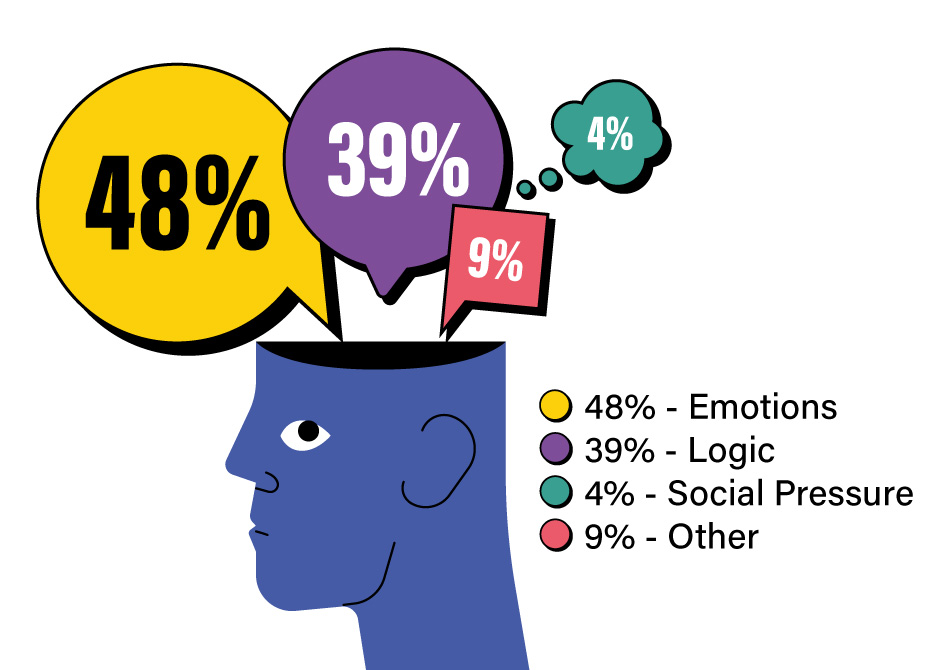
What influences your decisions the most?
New research by psychology-based app Noom, found that adults make an average of 122 decisions every day.
From small choices to bigger ones like what to eat or wear, our brains are always in action. But what influences our decisions the most: emotions, logic, or social pressure?
Behavioural science reveals that our choices are often shaped by priming effects - subtle subconscious cues that guide our decisions without us even realising it. For example, a clean room can prompt you to keep things tidy without even thinking about it.
To find out more about hidden persuasion, read our blog, Hidden Persuasion: Unveiling the secrets of dark nudges.

What’s the biggest barrier for you to switch from cow milk to vegan alternatives?
Those that voted ‘Habit’ may have done so because of status quo bias, where people stick to what they know, even if better alternatives are available. Changing daily habits requires significant cognitive and behavioural shifts, which many resist without strong motivation. They may also reduce cognitive dissonance by rationalising that switching is too inconvenient or by downplaying the benefits of vegan alternatives.
A large portion of people (49%) prioritise immediate sensory gratification, and a preference for taste, as a strong driver in food choices. This demonstrates how people form preferences based on sensory experiences, making it harder for them to adopt alternatives that differ significantly in taste.
Meanwhile, the 15% that voted ‘Nutritional value’ likely follow a rational decision-making model, weighing the health benefits of cow milk versus plant-based options. Concerns about nutritional sufficiency, like protein or calcium, often play a critical role in food decisions, especially if the new choice is seen as less familiar or less balanced
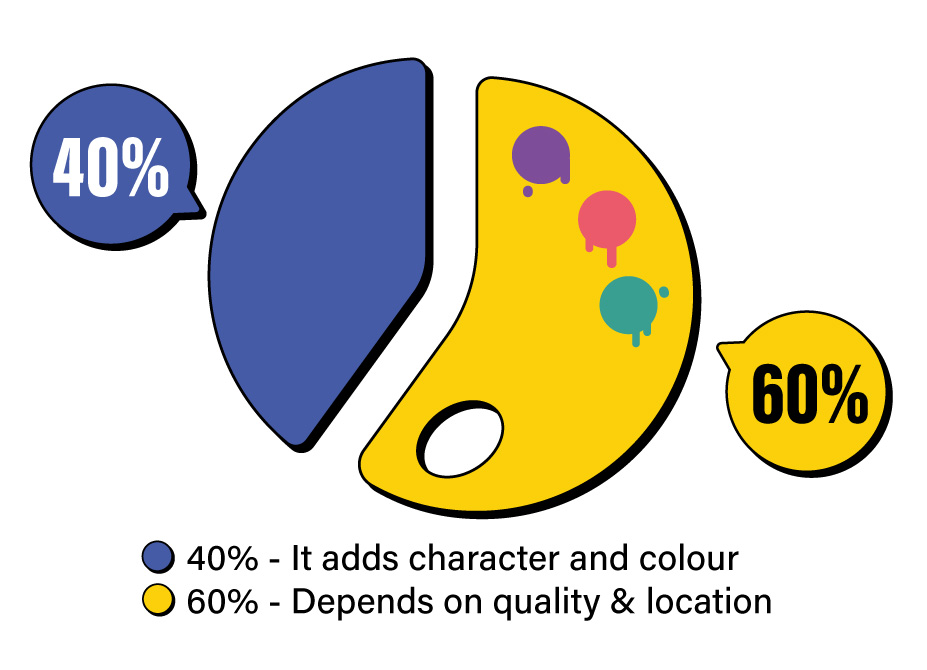
How do you feel about street art in cities?
Recently, London Zoo made headlines by removing a Banksy piece for 'safekeeping'.
The artwork, which depicted a gorilla lifting a shutter to release a sea lion and birds, has now been replaced with a replica. This got us thinking about how social norms and perception shape our views on street art - what some celebrate as creative expression, others might see as an eyesore...
Here in Lincoln, we have our own share of street art, like the pieces under the Wigford Way bridge. But opinions can be divided.
The Behavioural Science Framing theory suggests that the way we discuss and present street art influences whether it’s seen as a vibrant addition or an act of vandalism.
Did you vote with the majority? Follow us on LinkedIn for the latest insights, polls, and discussions. Share your thoughts with us!
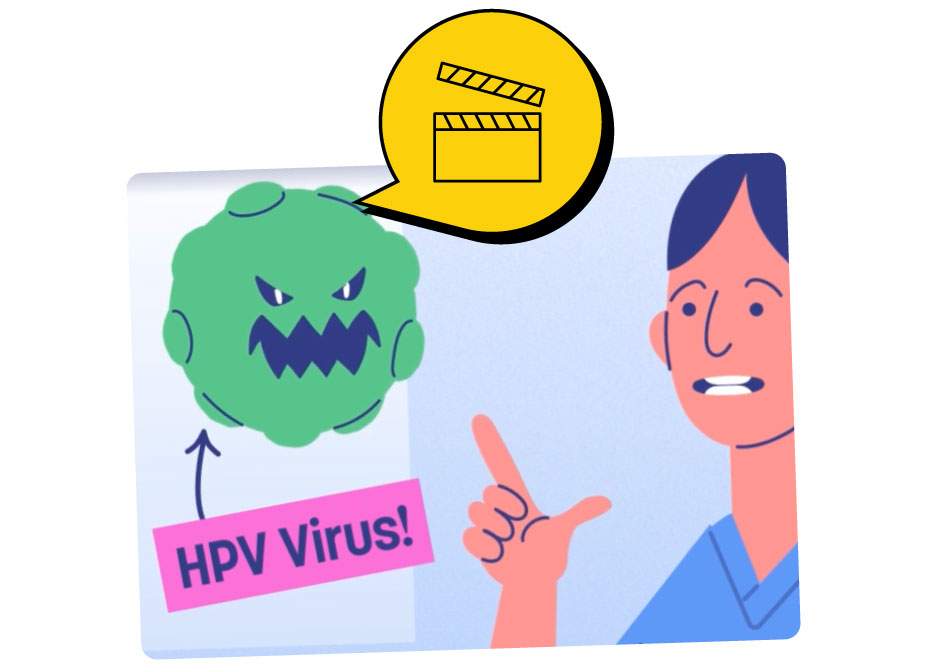
Communicating the HPV vaccination process in schools
In collaboration with Public Health Wales (PHW), we developed a short-animated film to explain the Human Papillomavirus (HPV) vaccination process clearly and helpfully, aiming to dispel any fears involved with getting the jab.

Kelly’s Highlights: Insights from #BCorpFestivalUK
After two inspiring days in Oxford at the #BCorpFestivalUK (the largest gathering of B Corp businesses in the world) our CEO is back and buzzing with ideas! It was a fantastic opportunity to reconnect with familiar faces from Lincoln and meet so many other passionate B Corp leaders.
Here are some of Kelly’s key takeaways:
Ultimately, it’s all about behaviour change, and Social Change is excited to be excelling in this!

The latest Behavioural Insights and how they can help you overcome resistance and inspire positive change.
More +Enter your email address below to access the Academy and our Webinars